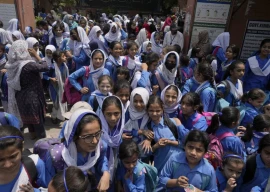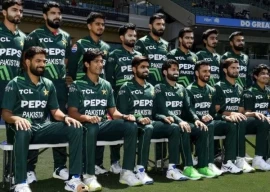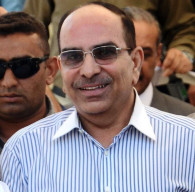The first reason is that news media have become one of the four pillars of the interrelated structure of society and state: the other three being the legislature, the judiciary and the executive. Unlike the other three pillars, which are ‘owned’ by the people at large, the privately-held news media belong to individuals or families or groups of investors on a commercial basis. As an essential component of the contemporary nation-state, the determinant factor for privately-owned news media — as for the other three components — must be the public interest, not the private profit motive.
The second reason is the nature of news media content. Unlike a physical product or tangible service purchased by a consumer, news media content absorbed by a citizen shapes awareness and perception about events and trends that affect citizen, society and state, which affect how an individual views the world at large. Information and opinion exchanged between the seller and the buyer of shoes and shirts, of airplane seats and hotel rooms are limited to the quality, price and performance of a given item. Branded goods and services sell because their buyer knows the predictable content in advance; whereas the content of news media in particular is unpredictable, volatile, unknown in advance. There are relatively few media users who transcend the content they receive. News media virtually define the public agenda, shape attitudes, influence consumer spending through advertising. Such power must, therefore, be subject to non-partisan principles of the public domain.
The third reason is the instinctive non-transparency of news media about their own internal financial realities. The public has no free, convenient access through websites to such information in so important a sector. Data about the legislature, the executive and the judiciary is almost always instantly accessible, whereas data on several dimensions of the media remains invisible. For example: employment terms (except for Wage Board Awards in print media), relationships with media-buying houses, which purchase time and space in bulk volumes, role of ratings agencies, which measure viewership and popularity of programmes and channels, circulation of print media and the connection with advertising tariffs, value of government-controlled advertising, amounts paid to media by overseas entities to promote public service campaigns, the cartel-like media owners’ associations, cross-media dominance, and cross-sectoral interests of news media proprietors in other fields.
Proprietorship of news media being different from the proprietorship of conventional commercial enterprises creates special obligations. News media should always serve the public interest by dispensing fair, accurate, balanced, non-partisan content in a clear, coherent manner, independent of commercial considerations and official influence. Very few, if any, media enterprises meet such tough but essential criteria. The only electronic news media owned by the state, i.e., PTV and the Pakistan Broadcasting Corporation (PBC) are not purely public interest media. In addition to being under government control and despite being the sole recipient of the TV licence fee, PTV also has a voracious appetite for advertising revenue. Poor, deficit-laden PBC is entirely at the mercy of government control and is heavily subsidised to ensure survival.
News media enterprises have expanded and diversified into new media. Despite uneven employment terms, they have created jobs for thousands. At times, they have suffered losses. They have often withstood coercive pressures by governments, which misuse control of official advertising to intimidate them. Yet, many news media have also prospered exceedingly well. Not a single large media group has gone bankrupt.
Our news media have rendered a valuable role in raising public awareness about important issues to unprecedented levels. Some of their content and programmes do substantially, courageously serve the public interest. Their satire and humour are inventive and entertaining.
Yet, news media content has also become unbalanced. Driven by a business model which seeks the lowest common denominator and the highest ratings, news media promote sensationalism, commercial excess, de-sensitisation by inane repetition of violent actions, imitative competition and sheer speculation. TV channels have dumbed down levels of taste and reduced calm, reasoned reflection. Public discourse on TV in particular direly needs rescue from the heedless pursuit of maximum audiences and optimal profit.
One alternative model for the ownership of news media could comprise the following elements: all news media entities should be publicly listed companies required to be registered with at least one stock exchange. Presently, only three media firms out of over 100 are listed i.e., (non-news) Hum TV, Media Times (Daily Times, Business Plus TV) and Southern Networks.
No single shareholder or group should be permitted to hold more than, say, two per cent of shares to enable the widest possible dispersal of shares. All financial aspects must be instantly accessible on websites. Segments of civil society, such as professional associations, public interest bodies, service delivery organisations, rural community-based networks, charitable and social welfare forums, research and educational institutions chosen by an even-handed process could be entitled to also hold limited blocks of shares on a rotational basis. No one single interest group would have the voting power to adversely influence content, or control the management of news media.
Selected strictly on the basis of professional competence and integrity, the management of such differently-owned news media would be accountable only to the widely-dispersed groups of citizen shareholders, not to a single individual or family or small group. If willing to make the transition to leaders-managers, proprietors of existing news media could apply their skills and vast experience in a dynamic new direction. They already have enough assets and income from other sectors: they will surely get a good price for their present shares in media enterprises!
After extensive consultation, new legislation and regulation can be formulated to ensure freedom of expression and accountability for alternative models for news media ownership. A new era could commence in which news media owned by the people truly serve the public interest in a balanced, transparent manner.
Published in The Express Tribune, August 7th, 2012.
COMMENTS (11)
Comments are moderated and generally will be posted if they are on-topic and not abusive.
For more information, please see our Comments FAQ

1736750329-0/Untitled-design-(37)1736750329-0-165x106.webp)

1736748956-0/Untitled-design-(35)1736748956-0-165x106.webp)















Author, This media is on point of no return, I have no doubt about that.Every suggestions or sane advise will fall on deaf ears.This media needs an iron hand to be dealt with.Let us save our suggestions until sanity prevails.Pemra has badly failed to implements it's policy.Am I not then justify to call it Pakistan Evil Media Rehabilitation Authorty.! Sorry. Respect and regards.
i have always found javed jabbar to be an utmost honest and straightfoward personality who shows some cerebral gray matter. this topic deserves serious consideration. anyone further interested in this should watch javed jabbar on dunya 'policy matters' from this last week. very interesting discussion.
@AsifKhokher (twitter):
"Internet and social media has also started to put pressure on it, which will drive these new channels to truth and integrity."
Then why not help them do it now than later when they will be forced by the realities of the market economy. Our economy is not big enough to support so many channels, that is why these channels use unhealthy practices to survive. Further, your suggestion does not provide solution for the financial transparency and unethical practices of vested interests, which are only possible in a privately owned channel, the main subject of the article. Moreover, the meager resources dispersed among several channels are one of the main reasons for low quality of programs and wide chunks of non-utilized air time due to lack of available programming consequently filled with junk and advertisements which is not only irritating to viewers but also a waste of public time. Perhaps you didn't watch a single channel for a longer period of time, otherwise you would have known the problem. There are times when I just keep switching the channels and find nothing useful being aired except endless repetitions of the same ads.
@Lala gee Your concept is opposite of the 'Open Economy' where more entities means more Competition. You are restricting innovation, creativity and talent. Let the economy flourish by inviting Competition. Let the public decide which one is useful, and which to reject. It will take time but winner will emerge itself. Our electronic media is new, and is in Incubator; we cannot compare it with western media. Let it grow at its own rather than putting more restrictions and blocking its neck. Internet and social media has also started to put pressure on it, which will drive these new channels to truth and integrity. These TV channels have now no option but to focus on honesty and integrity.
Too many channels are a total waste of public time and national resources as 50% of time is used to air advertisements due to lack of programs. The sheer number of 100 channels is a major cause of poor quality programming and unproductive competition. In my opinion the total number of channels should be limited to 3 each for news, entertainment, and sports categories and a couple more for specialized areas. This can be achieved by allowing all the channels to merge to form public limited companies hence achieving the objectives of financial transparency and diversification of interests. We must learn from the examples of UK, USA, and Canada where there are only a handful of channels available on terrestrial link and in a standard cable package.
I have high respect for the Writer, and the idea is good, however, I see some complications in the implementation of this. Is writer suggesting to convert Media Groups into Public Limited Companies under the current laws, or is it a different concept close to communism / socialism. Is not this a debate between socialism / communism and Capitalism, that resources of public interest be controlled by Public, whereby converting these media groups into entities focused on community interest will inherently loose its basis of existence due to non-commercial approach. .
An excellent piece of writing!
Good suggestions by the author. Many media men in Pakistan are paid agents of vested interests and accept kickbacks from all sides. All financial dealings must be open and scrutinized by public. Too much illegal money is changing hands in the media and it must be stopped. Starting next elected govt the talk of treason and calling army to takeover the govt must be made a treason which actually is according to Pakistani constitution.
A very thought provoking and a timely intervention by JJ at a time when our media is going through the phase of monopolization and cartelization.
Great insight from Javed Jabbar......... Tell u what sir, People here even don't know what ethics or ethical principles of doing business are all about. I simply hate sorry state of governance of media houses in pakistan.